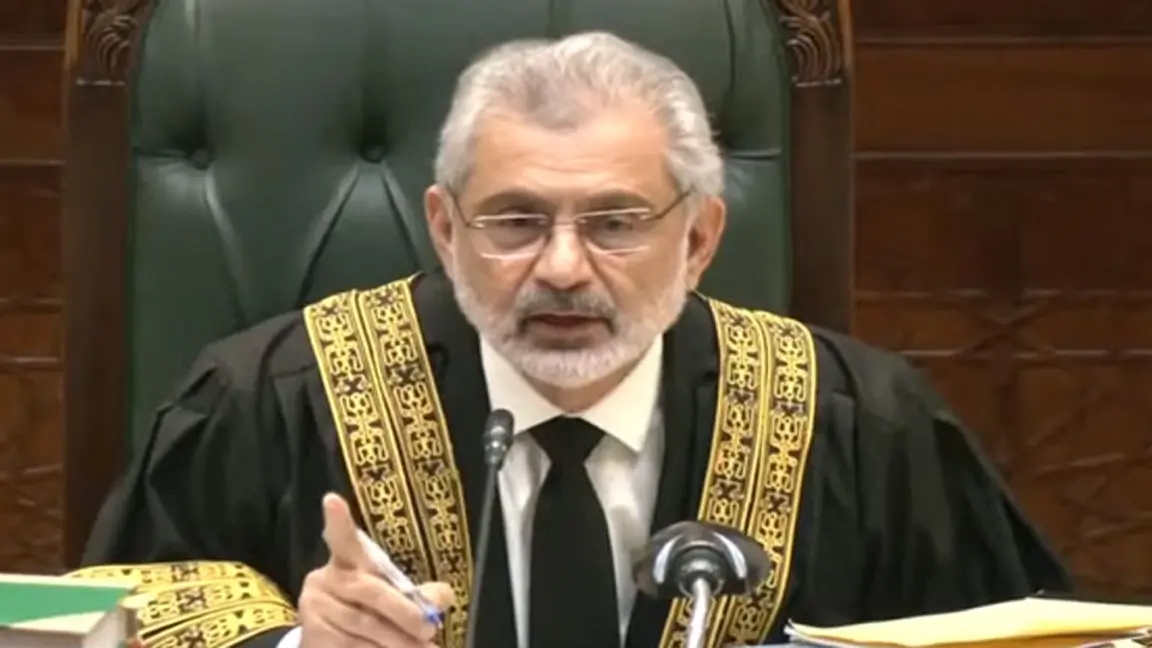The minutes from the Practice and Procedure Committee’s meeting on July 18, which was attended by three judges, were released on Saturday. The minutes indicate that Chief Justice of Pakistan Qazi Faez Isa urged for the immediate scheduling of review petitions related to the reserved seats case ruling. However, two other committee members—Justice Syed Mansoor Ali Shah and Justice Munib Akhtar—were not persuaded. They argued that most members of the 13-judge bench were on vacation and that a detailed order on the case was still pending.
CJP Isa emphasized the urgency of addressing the review petitions, stressing that failing to do so promptly would be both unjust and unfair. He even suggested that reopening the court might be necessary, even if it meant canceling vacations.
Justice Akhtar, who was on vacation, participated in the meeting via video link. During the meeting, the registrar noted that two urgent applications had been filed with the review petitions. The petitioners argued that the order under review had set a 15-day timeline, which, if enforced, would render the petitions moot.
The ruling party, PML-N, and three of its members have filed review petitions against the Supreme Court’s ruling from July 13, which awarded additional parliamentary seats to Imran Khan’s PTI.
Earlier this week, a full-court bench overturned orders from the Peshawar High Court and the Election Commission of Pakistan, which had removed reserved seats from the Sunni Ittehad Council. The court ruled that PTI should be recognized as a political party eligible for reserved seats. This decision, made by an eight-member majority and announced by Chief Justice Isa, was read out by Justice Shah. PTI was given 15 days to submit the necessary documentation to secure these seats.
At the committee meeting, Justice Mansoor and Justice Akhtar suggested that review petitions should only be considered by the original 13-member bench that decided the matter, as most judges were currently on holiday or abroad. They recommended that the petitions be addressed after the summer recess, when all 13 judges would be available at the principal seat.
It was also noted that review petitions could not be scheduled until a detailed judgment was released by the bench. CJP Isa argued that the constitutional right to review should take precedence over the judges’ vacation schedules.
In response, Justice Akhtar pointed out that summer vacations were scheduled according to court rules, which state that the judicial year begins on the second Monday of September and ends with the start of summer vacations the following year. He noted that summer vacations typically start on June 15, or another date set by the CJP and published in the Gazette. Although CJP Isa extended the start of the summer recess to July 15, there is no provision for canceling vacations once announced unless the full court approves changes to the rules.
The committee, by majority vote and with CJP Isa dissenting, decided to address the review petitions after the summer recess, when all 13 judges who heard the original appeals would be available at the principal seat.










